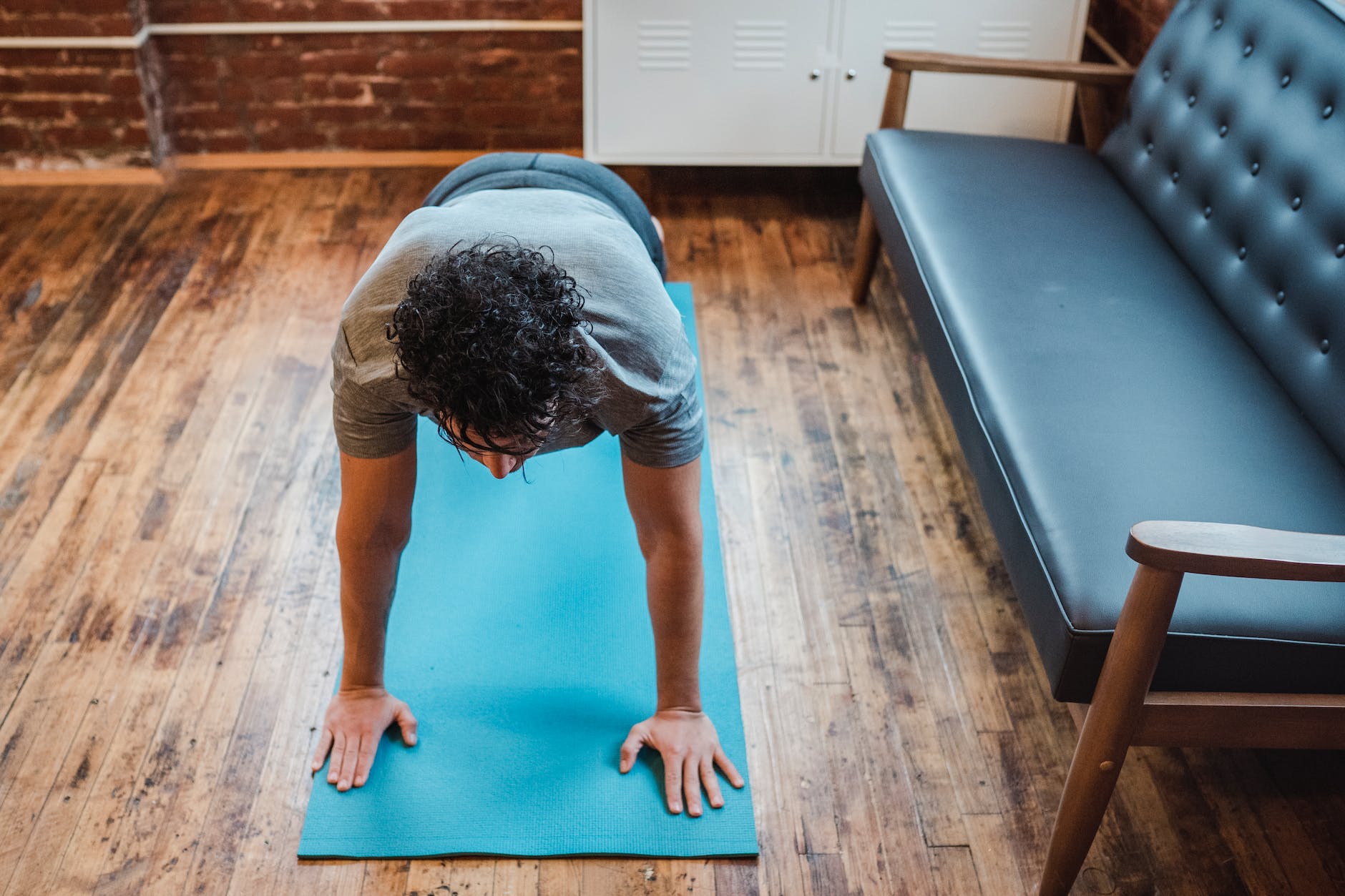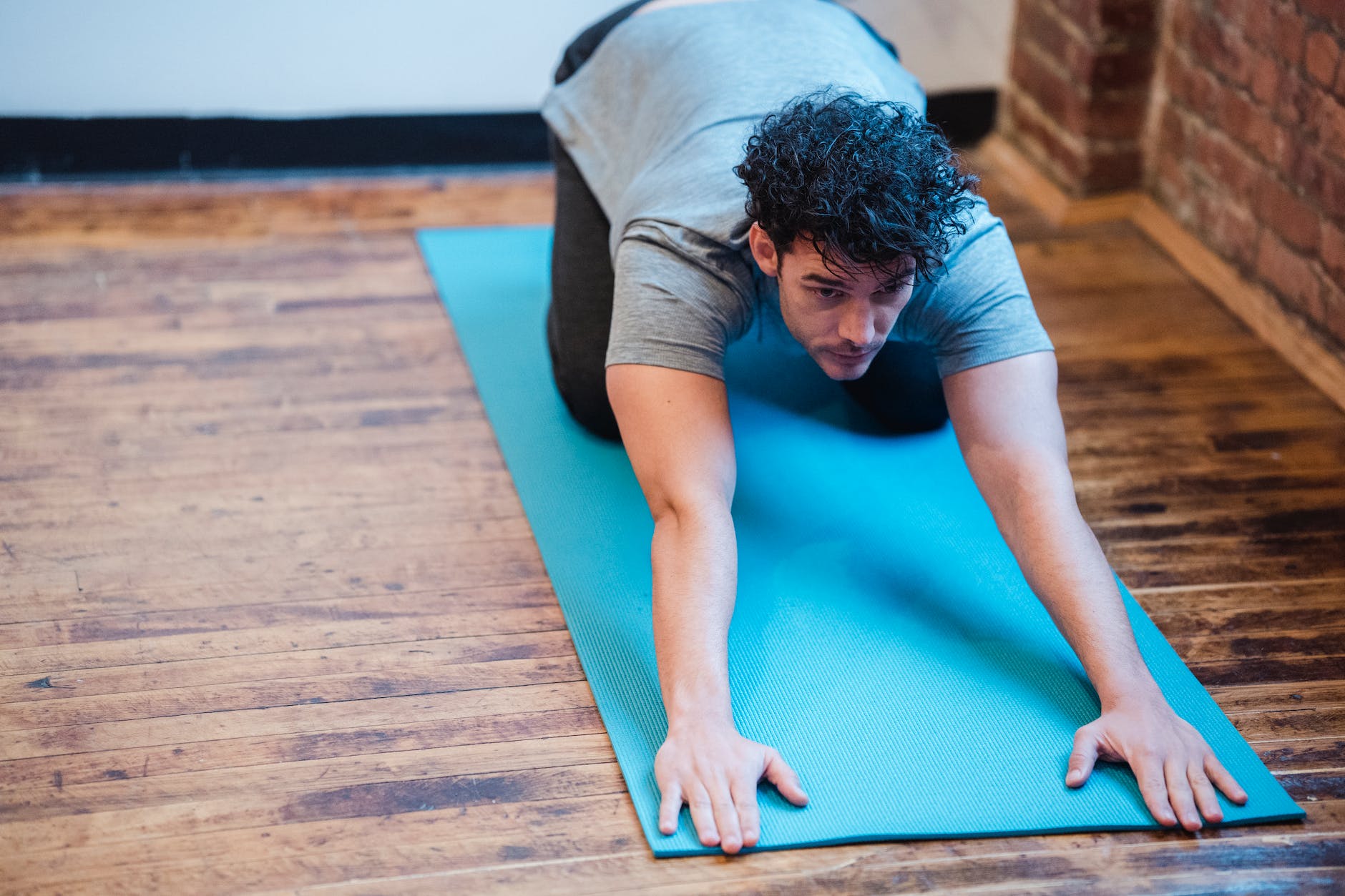Stress is a normal part of life. It is our body’s response to any demand or threat posed to it. When you sense danger, whether it’s real or imagined, your body’s defenses kick into high gear in a rapid, automatic process known as the “fight-or-flight” reaction or the stress response. Lets go over the effects of stress and exercising.
Stress can be beneficial in some situations, providing you with the motivation and focus to face challenges head-on. However, when stress becomes chronic, it can have severe implications for our health. It affects almost every system in our body – from the immune to the cardiovascular system. Stress can trigger a multitude of health issues, including heart disease, sleep problems, and depression.
Moreover, stress can significantly impact our physical appearance and body composition. It can lead to weight gain due to an increase in cortisol, also known as the “stress hormone,” which stimulates fat storage in our bodies.
The Relationship Between Stress and Exercising
Now that we understand the impact of stress on our bodies let’s delve into the relationship between stress and exercise. Numerous studies have shown a direct correlation between physical activity and stress levels. Exercise is a powerful stress buster. It can help reduce mental stress and anxiety, improve mood, and enhance overall mental well-being.
Exercise acts as a natural anti-anxiety treatment. It increases the production of endorphins – the brain’s feel-good neurotransmitters, which help induce feelings of relaxation and happiness. Furthermore, regular exercise can increase self-confidence, lower symptoms associated with mild depression and anxiety, improve sleep, and boost your overall mood.
However, too much physical activity without adequate rest can also lead to an escalation in stress levels. This is because intense exercise causes a spike in cortisol levels, which, if not managed correctly, can lead to chronic stress and related health issues.
The Benefits of Exercise for Stress Management
Exercise is one of the most effective ways to manage stress. By making exercise a regular part of your routine, you can significantly reduce your stress levels and improve your overall health.
When you exercise, your body releases chemicals like endorphins and serotonin that improve your mood and make you feel more relaxed. These chemicals can help manage stress by decreasing the body’s stress hormones, such as adrenaline and cortisol.
Additionally, exercise can lead to improvements in your sleep. As we know, stress can often lead to sleeping problems, and having a good night’s sleep is crucial for managing stress levels. Regular physical activity can help you fall asleep faster and deepen your sleep, thereby countering the adverse effects of stress.
Moreover, exercise can also provide you with a sense of accomplishment. Meeting regular exercise goals or challenges, even small ones, can boost your self-confidence and give you a sense of command over your life, which in turn can help manage stress.
Stress and its Effect on Your Fitness Journey
Stress can be a major roadblock in your fitness journey. It can lead to emotional eating, disrupt your sleep, decrease your motivation to exercise, and lead to fatigue, all of which can derail your progress towards your fitness goals.
When you are stressed, you may find it hard to maintain a balanced diet. You might crave sugary, fatty foods, which can lead to weight gain and health problems. Stress can also disrupt your sleep patterns, which is crucial for recovery and muscle growth.
Moreover, chronic stress can make it hard to find the motivation to exercise. You may feel too tired or overwhelmed to maintain your exercise routine, which can lead to a decrease in physical activity and a decline in your fitness levels.

How to Use Stress Control to Enhance Your Exercise Routine
Knowing how to manage stress can significantly enhance your exercise routine and help you reach your fitness goals. Here are a few ways to use stress control to boost your fitness journey.
Firstly, understand that stress is a natural response to challenging situations. It’s completely normal to feel stressed sometimes. The key is to manage it effectively. You can do this by incorporating relaxation techniques like deep breathing, meditation, and yoga into your routine.
Secondly, make exercise a part of your daily routine. As we discussed earlier, exercise can help manage stress levels. So, make sure to include some form of physical activity in your daily schedule.
Lastly, get adequate sleep. Sleep is crucial for stress management and for your overall health. It helps rejuvenate your body and mind, making you better equipped to handle stress.
Techniques for Mastering Stress Control in Your Fitness Journey
There are several techniques you can use to master stress control in your fitness journey. These techniques can help you manage stress effectively and enhance your physical performance.
One of the most effective techniques is mindfulness. Mindfulness involves focusing on your current experience and accepting it without judgment. It can help you manage stress by allowing you to stay focused on the task at hand, whether it’s your workout routine or your daily chores.
Another technique is deep breathing. Deep breathing can help reduce stress by slowing your heart rate and lowering your blood pressure. You can do this by taking slow, deep breaths, holding your breath for a few seconds, and then slowly exhaling.
Lastly, you can use progressive muscle relaxation. This technique involves tensing and then relaxing each muscle group. It can help you become more aware of physical sensations and achieve a state of deep relaxation.
The Role of Stress in Physical Performance
While chronic stress can be detrimental to our health and fitness, acute stress, or short-term stress, can actually enhance our physical performance.
“Exercise is the soul’s therapy, stress its adversary. When the two meet on the battlefield of the body, it’s always exercise that emerges victorious, turning stress into mere sweat.”
When we’re faced with a stressful situation, our body prepares us for the “fight or flight” response. This response includes a surge of adrenaline, increased heart rate, and elevated senses. These physiological changes can enhance our physical performance by giving us a burst of energy and increasing our focus.
This is why some athletes perform better under pressure – they use acute stress to their advantage. However, it’s important to remember that this only applies to short-term stress. Chronic stress can lead to burnout and decreased performance.
Tips for Managing Stress and Exercising Effectively
Managing stress and exercising effectively go hand in hand. Here are some tips to help you manage stress and enhance your fitness journey:
- Make a schedule: Having a set routine can reduce stress and make it easier to stick to your exercise regime.
- Set realistic goals: Unrealistic goals can lead to stress and disappointment. Set goals that are achievable and realistic.
- Get plenty of sleep: Sleep is crucial for recovery and stress management. Make sure you’re getting enough sleep every night.
- Eat a balanced diet: A healthy diet can help manage stress levels and fuel your workouts.
- Practice relaxation techniques: Techniques like deep breathing, meditation, and yoga can help manage stress levels.
Real-Life Examples of Stress Control Propelling Fitness Journeys
There are numerous examples of people who have successfully used stress control to propel their fitness journeys. One such example is Michael Phelps, the most decorated Olympian of all time. Phelps has openly talked about his struggles with stress and anxiety. He credits his success to his ability to manage his stress levels and maintain a rigorous training regime.
Another example is Serena Williams, one of the greatest tennis players of all time. Williams has faced immense pressure and stress throughout her career. She has often spoken about the role of stress management in her training regime and how it has helped her achieve her goals.
These examples show that stress control is crucial for success in any fitness journey. It’s not just about physical strength and endurance but also about mental resilience and the ability to manage stress.

Conclusion: Making Stress Control a Part of Your Fitness Journey
Stress control is an essential part of any fitness journey. Managing stress effectively can enhance your exercise routine, boost your physical performance, and help you achieve your fitness goals.
Remember, stress is a natural part of life. The key is not to eliminate stress completely but to learn how to manage it effectively. Techniques like mindfulness, deep breathing, and progressive muscle relaxation can help you achieve this.
Incorporate these techniques into your fitness regime, make exercise a part of your daily routine, get adequate sleep, and fuel your body with a balanced diet. These steps will help you manage stress effectively and propel your fitness journey.
Remember, the journey towards fitness is not just a physical one but a mental one as well. So, make stress control an integral part of your fitness journey, and you’re sure to see positive results.
Mastering the Basics: A Comprehensive Guide to Muscle Building for Beginners
The Science Behind Muscle Recovery: Effective Strategies for Post-Workout Healing





